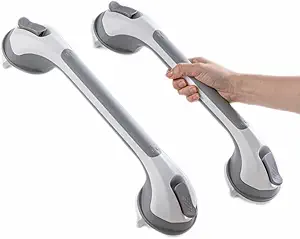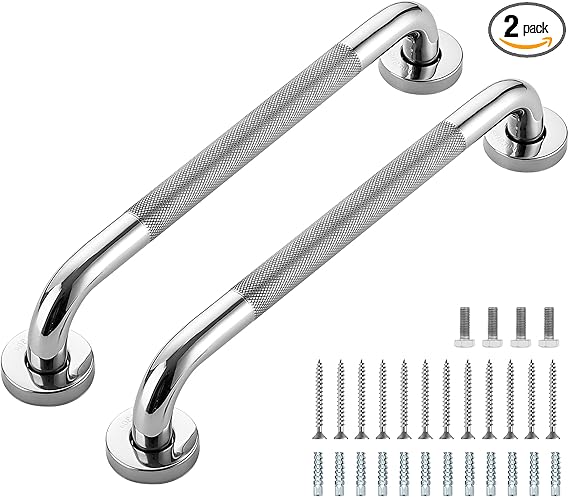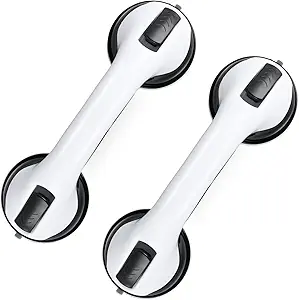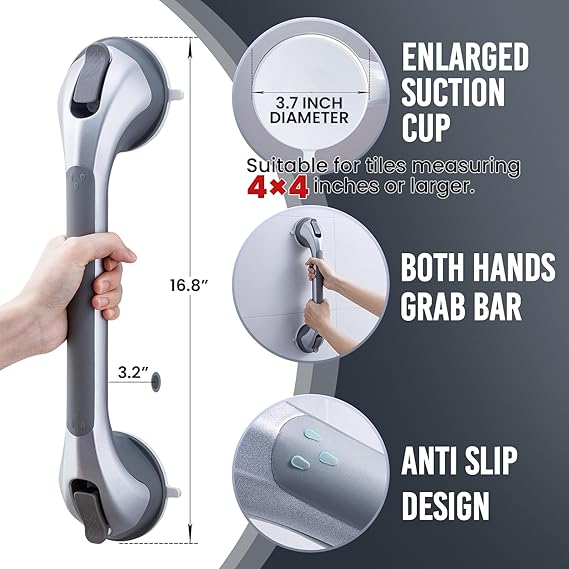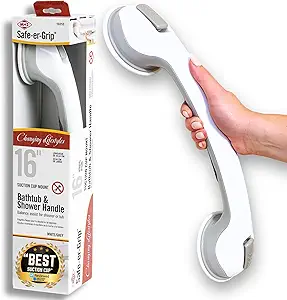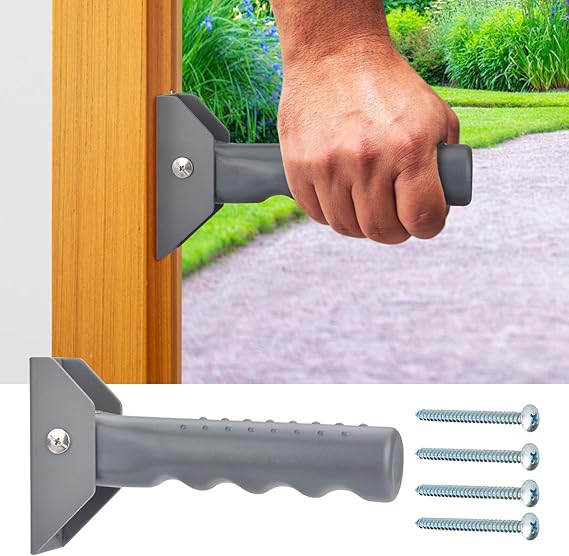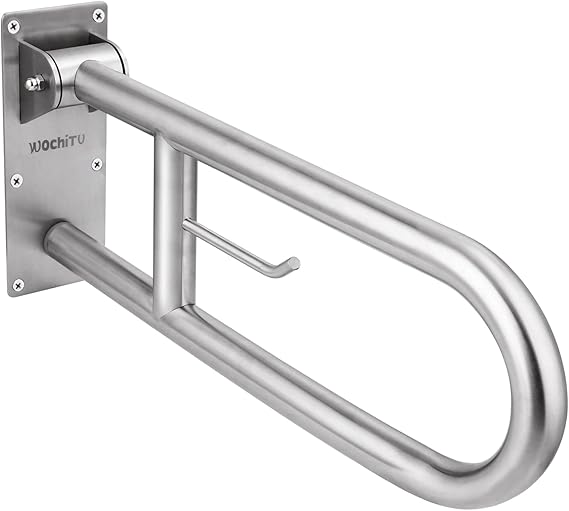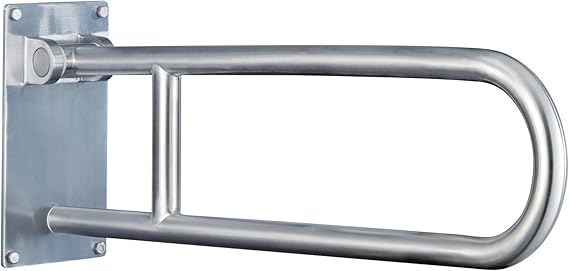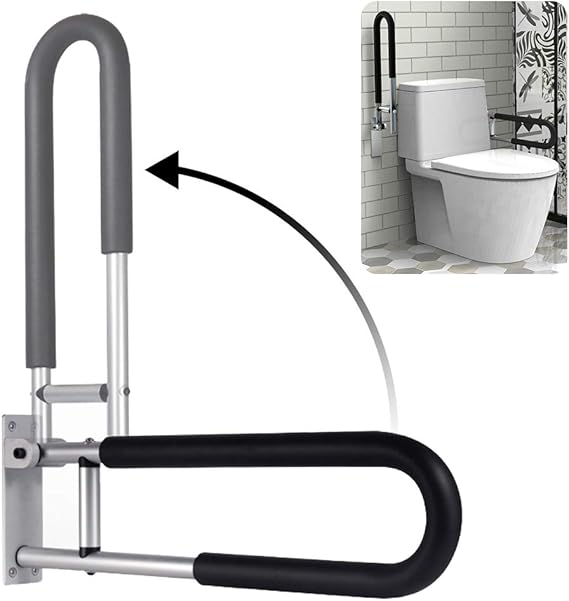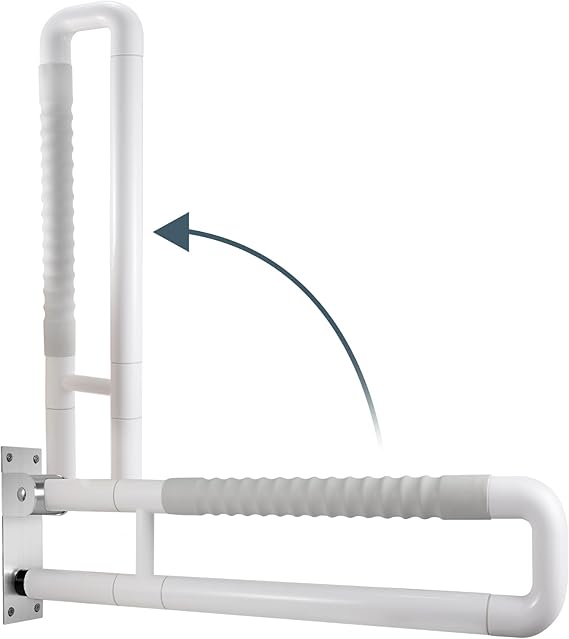Author: Anushika Singhal | Living with Muscular Dystrophy for 10 Years

Living with Muscular Dystrophy: My Daily Challenges
As someone who has lived with Muscular Dystrophy (MD) for over 10 years, I know firsthand how simple daily activities can become physically exhausting or even dangerous. Getting up from a toilet seat, standing after a shower, or balancing while dressing are not easy tasks. A slight slip can result in a painful fall.
Over the years, grab bar for toilet and especially flip grab bars have become my daily support tools—both physically and mentally. These simple-looking bars offer stability, support, and a sense of independence, especially in bathrooms where the risk of slipping is high.
Why Grab Bars Are Lifesavers
Grab bars are installed on walls to provide support while standing, sitting, or moving. Whether you’re stepping out of a shower or getting on the toilet, these bars are essential for anyone with mobility challenges.
Benefits:
Prevent falls in wet or slippery areas
Provide balance while transitioning
Easy to install in key areas like bathrooms, hallways, or next to beds
Offer psychological comfort by knowing you’re supported
What Is a Flip Grab Bar?
A Flip Grab Bar (also called a foldable or swing-up bar) is a space-saving solution designed to fold up when not in use. They are perfect for:
Toilets, especially in smaller bathrooms
Shared bathrooms (e.g., between caregiver and patient)
Areas that require both support and space efficiency
5 Best Grab Bar For Toilet Comparison Table
Grab Bar Model | Features | Material | Size | Weight Capacity | Price Range | Buy Now |
|---|---|---|---|---|---|---|
TAILI Grab Bars for Bathtubs | 2 Pack Suction Grab Bars | ABS | 12.2" | 240lbs | $30 to $40 | |
Grab Bars for Shower, 2 Pack | Non Slip Design | Stainless Steel | 12" to 36" | 500lbs | $20 To 70$ | |
Grab Bars for Bathtubs and Showers ( 2 Pack) | 12" Strong suction shower bar | Plastic | 12" to 16" | 250lbs | $18 To $32 | |
TAILI Shower Grab Bars, 16 Inch | No drill suction grab bar | ABS | 12.2" to 16.8" | 240lbs | $10 to 20" | |
Safe-er-Grip Changing Lifestyles Suction Cup Grab Bars | Grip changing suction Grab Bar | ABS | 16" | 240lbs | $12 to $22 |
Top 5 Flip Grab Bars Comparison Table
Grab Bar Model | Features | Weight capacity | Size | Material | Price Range | Buy Now |
|---|---|---|---|---|---|---|
Flip Up Grab Bar for Doorway/Stairs | Non Slip Grip | 300 Pounds | 7" | Metal | $18 to $32 | |
29.5 INCH Stainless Toilet Safety Rails | Disabled flip -up bathroom grab bar with paper holder | 350lbs | 29.5" | 304 Stainless Steel | $70 to $100 | |
Moen Stainless Steel Bathroom Grab Bar | 30" Flip up Grab bar with paper Holder | 500lbs | 30" | Stainless Steel | $85 to $115 | |
Handicap Grab Bars Rails 23.6 Inch | Space Saving Flip up Grab Bar | 300lbs | 23.6" | Stainless Steel | $65 to $90 | |
WochiTV Flip up Grab Bar 30.1 Inch | White Handrail anti slip bathroom safety bar | 380lbs | 30.1" | Stainless Steel | $65 to $90 |
Conclusion: Your Safety, Your Independence
Living with Muscular Dystrophy comes with its daily struggles, but small adaptations can make a huge difference. Grab bars and flip grab bars aren’t just accessories—they’re part of your independence toolkit.
Whether you’re installing them in your own home or in a loved one’s bathroom, they are a lifesaving, fall-preventing, confidence-boosting investment.
If you’re like me, valuing every bit of independence, then grab bars are not optional—they’re essential.
FAQs
❓ Where should I install grab bars in my house?
Bathrooms (near toilet and shower), beside the bed, and even in hallways for extra support.
❓ Are grab bars hard to install?
Most come with wall-mounting kits and are fairly easy to install. For tiled walls, consider professional help.
❓ How much weight can a grab bar hold?
Typically between 100–500 lbs depending on the make. Always check specifications before buying.
❓ Are flip grab bars better than fixed ones?
Not necessarily better—just more space-efficient. Great for shared or smaller spaces.
❓ Can I install a grab bar without drilling?
Yes, some suction grab bars exist, but they aren’t as secure as wall-mounted ones.
If you found this guide helpful, do share it with someone who may benefit from added safety and support at home.

Don’t forget to use the affiliate links to support our work at no extra cost to you!

